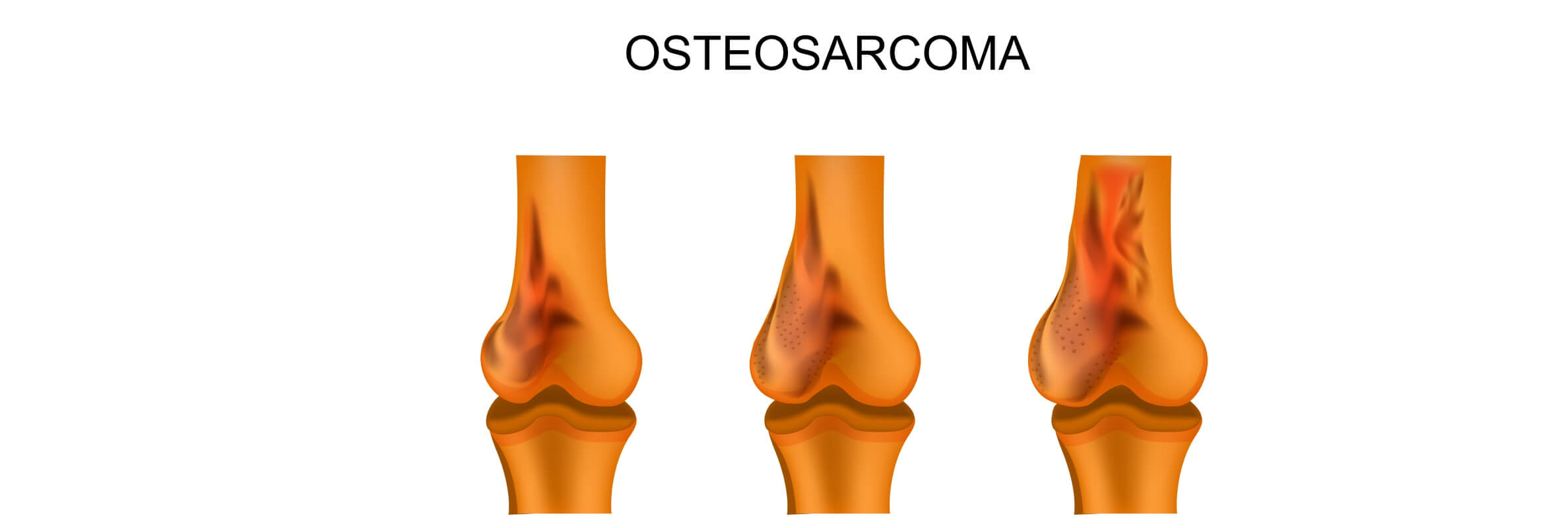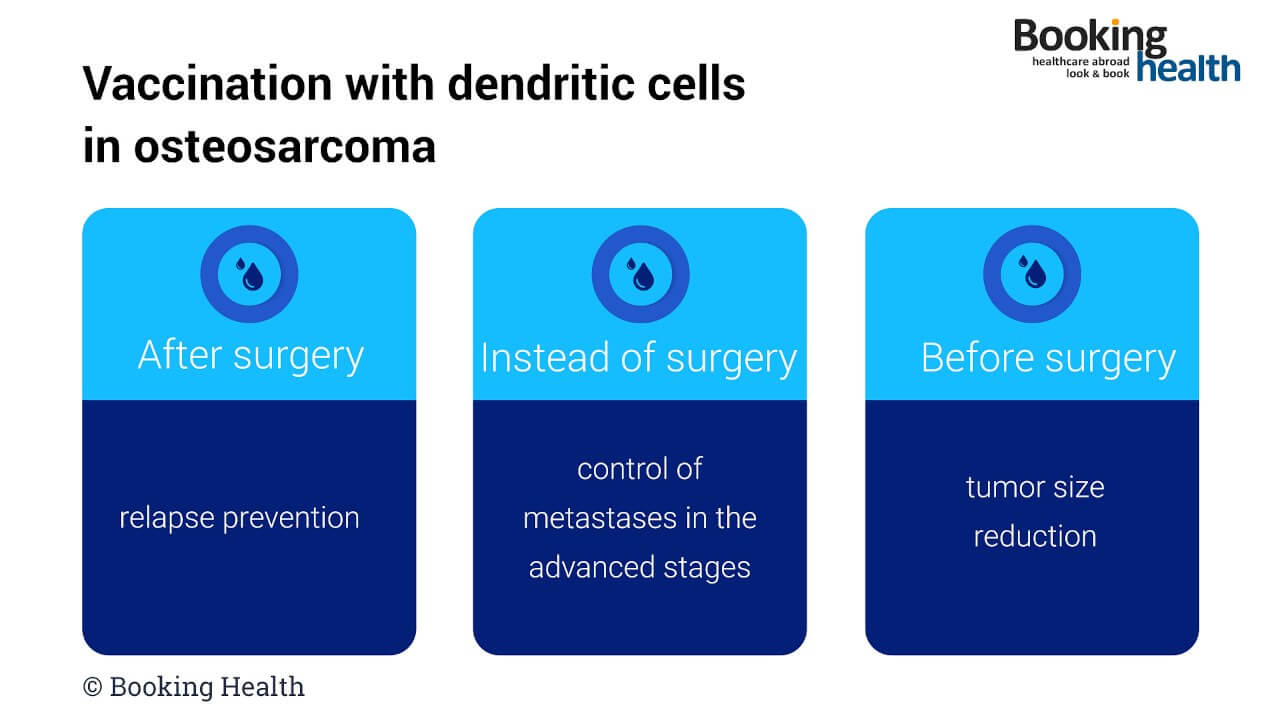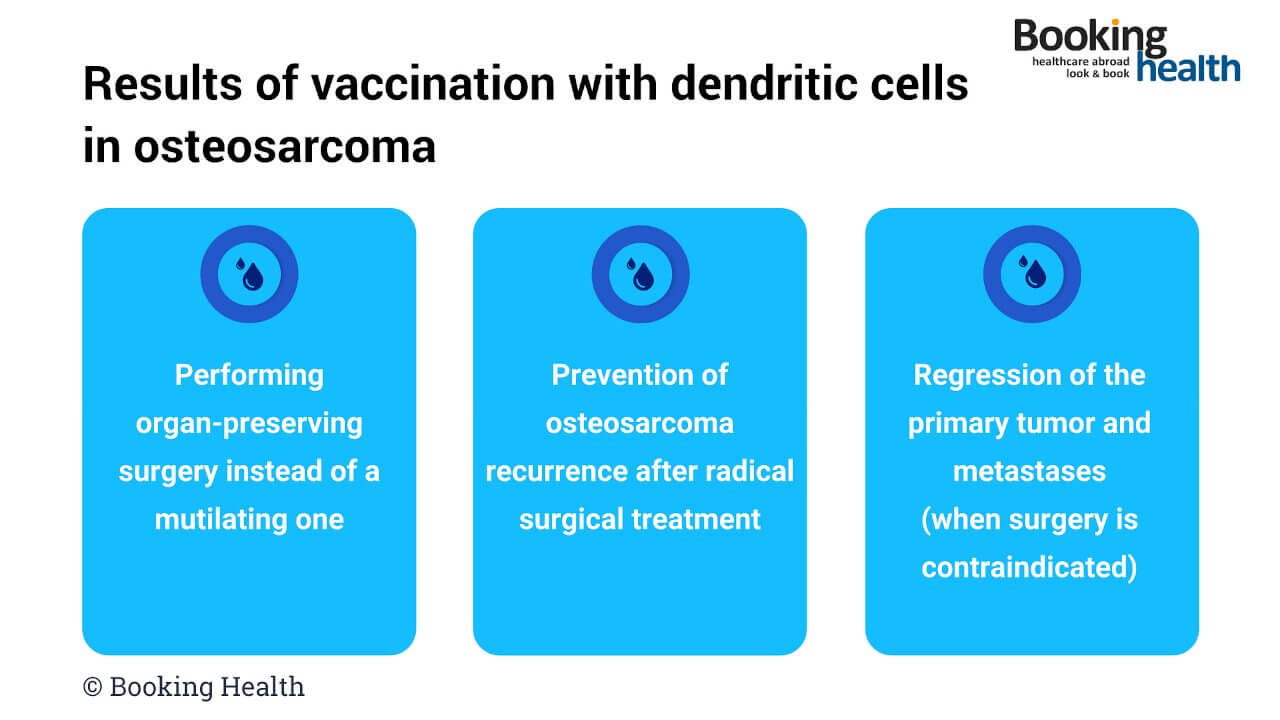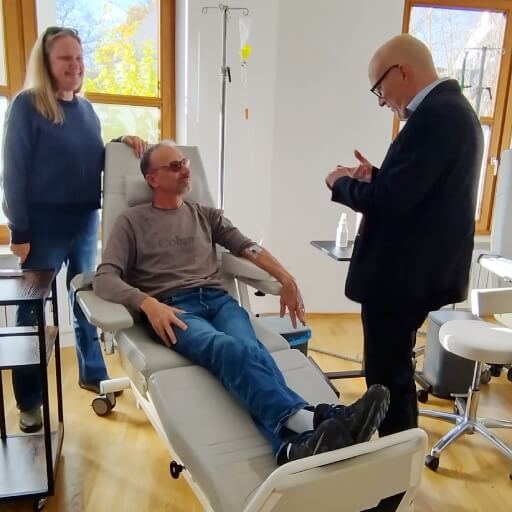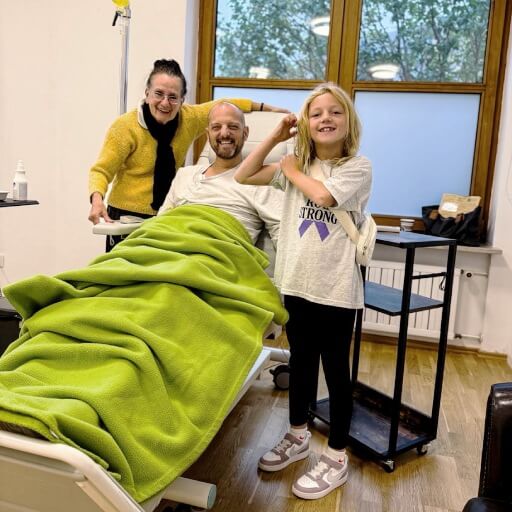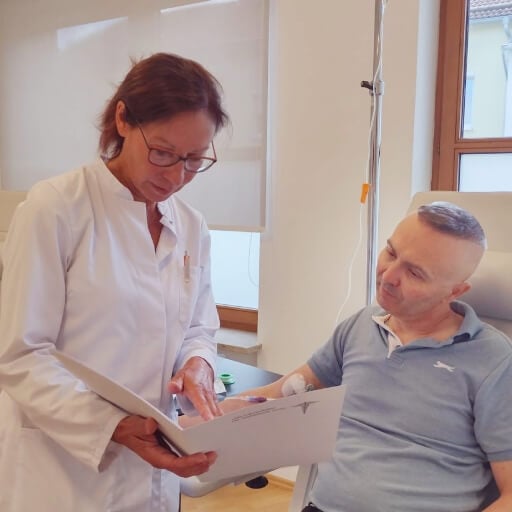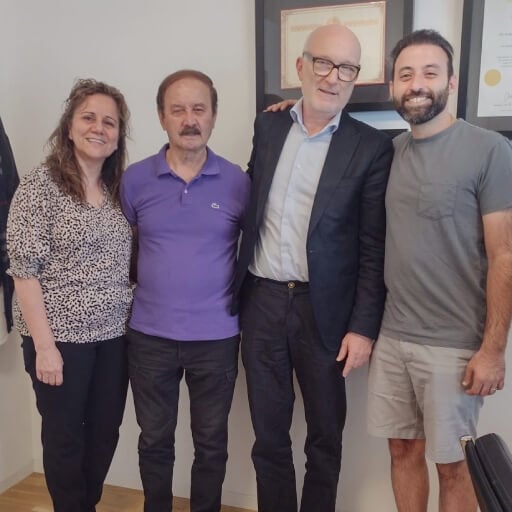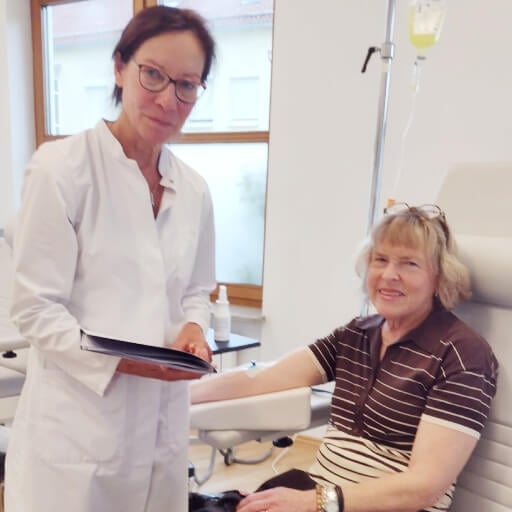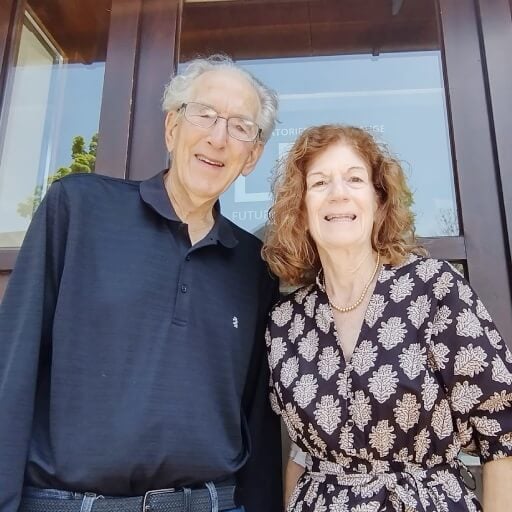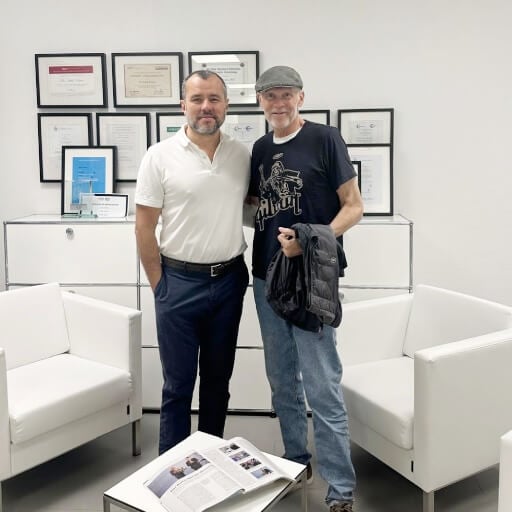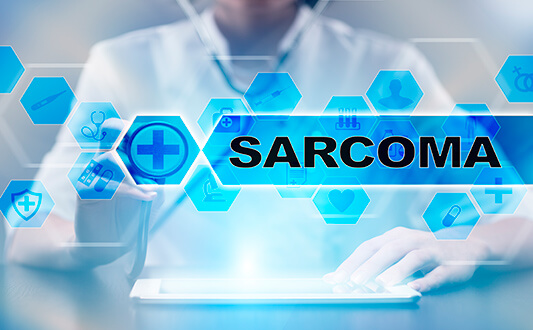Osteosarcoma tumors are a rare but aggressive form of bone cancer, most commonly affecting adolescents and young adults. In Germany, approximately 60 children and adolescents under 18 are diagnosed with osteosarcoma each year, accounting for about 2.6% of all pediatric malignancies in this age group [1]. This cancer typically arises in the long bones, such as the femur or tibia, and has a high potential to spread to other parts of the body, particularly the lungs [2].
For decades, the standard treatment approach for osteosarcoma has included a combination of surgery and chemotherapy. This conventional protocol has been quite successful, allowing many osteosarcoma patients to achieve remission. In specialized clinics, the 5-year survival rate after treatment is approximately 70-80% [3]. However, in many cases, especially those involving chemoresistance or metastatic osteosarcoma, traditional therapies alone may not be sufficient.
To address these challenges, researchers and oncologists have developed new targeted therapy for osteosarcoma, most notably, immunotherapy [4]. This innovative approach activates the patient's own immune system to fight cancer more effectively and with fewer side effects. One such advancement is the use of dendritic cell vaccines, which aim to stimulate the body's immune system so that T-cells recognize and attack osteosarcoma cells more effectively.
Leading oncology centers in Germany are at the forefront of offering these advanced treatments. By integrating traditional therapies with innovative immunotherapeutic targeted therapy, these centers aim to enhance treatment efficacy while minimizing adverse effects and improving the quality of life for osteosarcoma patients.
Understanding Dendritic Cell Immunotherapy for Osteosarcoma
One of the most advanced forms of immunotherapy available today is dendritic cell therapy for osteosarcoma. This approach is based on the use of the body's natural defense system, specifically dendritic cells, which play a critical role in activating the immune response against cancer.
What Is Dendritic Cell Therapy for Osteosarcoma?
Dendritic cells are immune cells responsible for identifying foreign and abnormal cells, including osteosarcoma cells, and presenting them to T-cells for destruction. In dendritic cell osteosarcoma treatment, doctors isolate a patient's immature dendritic cells from the blood and transform them into active dendritic cells in the laboratory. During the initial stages of the maturation process, these cells are exposed to tumor antigens, proteins from the patient's own tumor tissue, so that they can "learn" to recognize osteosarcoma cells and make effector T-cells attack them.
This type of cancer therapy is fundamentally different from traditional chemotherapy. Cytotoxic drugs indiscriminately kill both healthy and osteosarcoma cells. In contrast, activated by the vaccine, effector T-cells target tumor cells with precision and minimal side effects. It works by enhancing the body's natural immune response, making it a highly promising osteosarcoma targeted therapy, especially in cases where chemotherapy has failed or caused significant complications.
The importance of dendritic cell research was internationally recognized when the Nobel Prize in Physiology or Medicine was awarded in 2011 to Dr. Ralph Steinman for his discovery of dendritic cells and their role in adaptive immune response and T-cells activation [5]. This breakthrough laid the foundation for the development of therapeutic cancer vaccines.
Professor Frank Gansauge Shares 22 Years of Dendritic Cell Therapy Experience
To provide you with deeper insights into dendritic cell therapy for osteosarcoma, we spoke with Professor Frank Gansauge, one of Germany's most experienced immunotherapy specialists. With over 22 years dedicated to dendritic cell research and treatment, Professor Gansauge has witnessed firsthand how this innovative cancer therapy has transformed cancer care. His clinic became one of the first private laboratories offering dendritic cell therapy in 2001, establishing him as a true pioneer in the field.
In our comprehensive interview, Professor Gansauge explains the scientific foundation of dendritic cell therapy in accessible terms, describing these immune cells as "officers of the immune system" that train T-cells to recognize and destroy osteosarcoma cells. "When a person is infected with a virus or bacterium, dendritic cells absorb antigens, present them on their surface, and then 'train' effector cells to take concrete actions against the pathogen," he explains, making complex immunology understandable for patients and families.
The professor shares remarkable clinical outcomes from his practice, including cases of complete recovery where patients showed no tumor recurrence after five years. His approach emphasizes personalized treatment, stating: "It is the patient who is the center of the therapeutic process. We strive to restore not only a person's physical health but also mental well-being." He discusses the therapy's effectiveness, noting that "the effectiveness of dendritic cell therapy varies within 50-65%, both according to our observations and according to the observations of other doctors involved in this type of therapy."
This interview offers invaluable insights for anyone considering dendritic cell therapy for osteosarcoma, offering both scientific understanding and hope based on decades of clinical experience of this targeted therapy for effector T-cells activation.
Expert Insights from Prof. Gansauge: The Power of Dendritic Cell Therapy in Cancer Treatment
How Is Dendritic Cell Immunotherapy Performed in Osteosarcoma?
The dendritic cell therapy process is designed to be straightforward and minimally invasive for patients. The entire treatment follows a carefully structured two-step program that spans approximately one week, with both steps conducted on an outpatient basis, allowing you to return home after each visit.
Step 1: Initial Consultation and Blood Collection (Day 1)
Your cancer treatment journey begins with a comprehensive evaluation at the clinic. During this first visit, you will meet with your medical team who will review your medical history and conduct a physical examination to ensure dendritic cell therapy is right for your specific situation.
Several important tests will be completed during this visit:
- Complete blood count to check your overall blood health
- Liver function tests to ensure your liver is working properly
- Kidney function tests to verify healthy kidney operation
- Additional specialized tests if needed based on your medical history
The most crucial part of this visit is the blood collection process. Your medical team will carefully collect between 150-200 milliliters of blood, depending on your body size. This blood contains the special immune cells needed to create your personalized vaccine.
In some cases, tumor fragments obtained during a previous surgery or biopsy can be used, but a liquid biopsy is a better source of actual tumor antigens because it provides healthcare professionals with information about the latest tumor DNA mutations for more targeted therapy.
Once collected, your blood sample is immediately sent to a certified laboratory that follows the strictest safety standards. This laboratory is closely monitored by important regulatory organizations including the European Medicines Evaluation Agency [6] and German health authorities to ensure your safety throughout the process.
Step 2: Vaccine Administration (Day 8)
After one week of specialized laboratory work, you'll return to the clinic for your vaccination. During this week, skilled laboratory technicians have been training your dendritic cells to recognize and fight your specific cancer cells.
Your vaccination day will include:
- A simple injection under the skin, usually in the groin area
- Supportive vitamin therapy including high-dose vitamin D and water-soluble vitamins
- An intravenous vitamin infusion to boost your immune system's response
- Professional nursing care throughout your visit
The injection itself is quick and causes minimal discomfort. The additional vitamins help your body respond better to the vaccine and support your immune system as it learns to fight cancer more effectively. Your entire visit typically takes just a few hours, and you can go home the same day feeling confident that you've received a cutting-edge cancer treatment designed specifically for you.
When Is Dendritic Cell Therapy for Osteosarcoma Used?
Dendritic cell therapy fills critical gaps in cancer treatment where conventional approaches face limitations. This targeted therapy becomes particularly valuable in chemoresistant cases, where tumors no longer respond to standard drug combinations that once showed promise.
The cancer therapy addresses specific clinical challenges that patients and families often encounter. When surgery alone cannot eliminate all microscopic cancer cells, dendritic cell vaccination helps your immune system hunt down remaining tumor cells that imaging cannot detect. For patients facing potential amputation due to extensive tumor growth, this treatment can help shrink tumors before surgery, significantly improving the chances of limb-preserving procedures.
In advanced cases where surgery is no longer viable, dendritic cell therapy for osteosarcoma offers hope when other cancer treatment avenues have been exhausted. Unlike harsh chemotherapy that affects your entire body, this targeted therapy works by enhancing your natural immune response, providing tumor control with minimal side effects and better quality of life during cancer treatment.
Who Is Eligible for Dendritic Cell Therapy for Osteosarcoma?
This targeted therapy is suitable for patients with both primary osteosarcoma (originating in the bone) and metastatic disease (tumor progression to the bone from another part of the body). Eligibility is determined through a detailed diagnostic workup, including X-rays, MRI, CT scans, and PET/CT.
The oncology team plans cancer treatment based on the results of the diagnosis, including dendritic cell vaccination at one of the following stages:
After Osteosarcoma Surgery
In many cases, immunotherapy cancer treatment begins after the tumor has been surgically removed. Surgery is typically performed to remove the primary tumor along with a margin of healthy tissue. However, even with precise excision, microscopic cancer cells may remain in the body. Administering dendritic cell osteosarcoma treatment in the postoperative period enhances the immune system's ability to detect and destroy any remaining tumor cells. This reduces the risk of metastatic osteosarcoma and supports relapse prevention.
Before Osteosarcoma Surgery (Neoadjuvant Setting)
When given before surgery, dendritic cell immunotherapy is combined with chemotherapy to shrink the tumor and prepare the body for a more targeted therapy, bone-sparing operation. This is especially important in limb-salvage procedures, as immunotherapy treatment for osteosarcoma helps reduce tumor volume and may minimize the need for amputation. A typical preoperative protocol lasts around 8 weeks, just enough time to complete a full course of the osteosarcoma vaccine and develop antitumor immune response.
When Surgery Is Not an Option
Unfortunately, many osteosarcoma cases are diagnosed at an advanced stage, often after the cancer has spread to the lungs or other organs. In these situations, surgery may no longer be viable or beneficial. This is where dendritic cell cancer treatment becomes especially valuable. Unlike chemotherapy, which can be harsh and ineffective in advanced cases, immunotherapy of osteosarcoma stimulates the body's immune system to slow tumor progression and improve quality of life without the toxicity of traditional cancer treatments.
A biopsy is then performed to extract tumor tissue, which is used to create the personalized osteosarcoma cancer vaccine. It is also essential to determine the histological subtype of the tumor, as there are several types of osteosarcoma recognized by the World Health Organization. Thanks to its versatility, dendritic cell therapy for osteosarcoma can be adapted to each patient's condition and treatment stage, making it one of the most advanced new cancer treatments for osteosarcoma available today.
Clinical Outcomes and Benefits of Dendritic Cell Immunotherapy for Osteosarcoma
The use of immunotherapy treatment for osteosarcoma, particularly dendritic cell therapy, has led to remarkable clinical results that are reshaping how this aggressive cancer is managed. As an individualized approach, the osteosarcoma cancer vaccine offers multiple advantages over conventional therapies and demonstrates effectiveness in both early and advanced stages of the disease.
Lower Risk of Recurrence
One of the most significant benefits of dendritic cell osteosarcoma treatment is its ability to reduce the rate of cancer relapse. While traditional cancer treatment protocols result in recurrence in approximately 30% of cases, patients receiving dendritic cell therapy experience a much lower recurrence rate of only 12-15%. This makes the vaccine a powerful tool in osteosarcoma prevention, especially after surgical removal of the primary tumor.
Effective in Chemoresistant Cases
Conventional chemotherapy may not always work, particularly when osteosarcoma is resistant to even the most aggressive drug combinations. In contrast, immunotherapy of osteosarcoma has demonstrated success in stimulating the immune system to recognize and attack tumors that no longer respond to chemotherapy. For many patients, this represents a vital second chance when all other treatment avenues have failed.
Prevention of Limb Amputation
In the past, extensive tumor growth often left surgeons with no choice but to amputate a limb. Today, a new treatment for osteosarcoma using dendritic cells helps to shrink the tumor before surgery or eliminate residual tumor cells afterward, significantly reducing the need for such drastic procedures. As a result, more patients can undergo organ-preserving surgery and retain full or near-full limb functionality.
Helps Prevent Osteosarcoma Metastasis
Metastatic osteosarcoma is a major concern, especially in spread to the lungs [7]. Administering immunologic therapy for osteosarcoma immediately after surgery boosts the immune response, while the patient is waiting for chemotherapy (which can be delayed for several weeks during wound healing). This helps to control any lingering osteosarcoma cells and plays a crucial role in osteosarcoma prevention of distant metastases.
Works in Early and Advanced Stages
Whether used before surgery, after surgery, or as a stand-alone approach in inoperable cases, dendritic cell immunologic therapy for osteosarcoma adapts to the patient's condition and stage. It supports healing, improves survival rates, and enhances quality of life by reducing the need for aggressive treatments.
Clinical Data on Dendritic Cell Osteosarcoma Treatment
Clinical observations and trials have shown that integrating dendritic cell osteosarcoma treatment into a patient's care plan leads to better long-term outcomes compared to standard therapies alone. The table below compares conventional treatment and treatment enhanced with immunologic therapy for osteosarcoma.
| Clinical Outcome | Conventional Treatment Only | With Dendritic Cell Immunotherapy |
|---|---|---|
| 5-Year Survival Rate | 65-70% | Up to 80% |
| Limb Preservation Rate | ~60% | Over 85% |
| Recurrence Rate | ~30% | 12-15% |
| Effectiveness in Chemoresistant Cases | Low | High (improved tumor control) |
| Use in Inoperable/Advanced Stages | Limited | Viable treatment option |
| Support for Osteosarcoma Metastasis Prevention | Minimal | Yes, reduces risk of metastatic osteosarcoma |
*Booking Health data. Success rates vary depending on cancer type, stage, and individual patient factors.
A Closer Look at the Osteosarcoma Patient Journey
For many patients diagnosed with osteosarcoma, the emotional toll of the disease can be as overwhelming as the physical symptoms. The word "cancer" alone is enough to turn a family's world upside down. At a time when decisions must be made quickly, hearing about a promising option like dendritic cell immunotherapy can feel like a lifeline, especially for those facing difficult odds.
Take Lily Spencer's story, for example. At just 15 years old, she was told she had osteosarcoma cells in her femur and that amputation might be necessary. Her parents were devastated, desperately searching for an option that could save her leg and her future. After finding a clinic in Germany through Booking Health, Lily underwent surgery followed by a course of osteosarcoma cancer vaccine injections. Thanks to robust T-cell activation, her recovery was steady, and today she walks without assistance. What stood out most to her family was not only the advanced treatment, but also the warmth of the medical team and the detailed coordination.
In another case, Marco Diaz, a 42-year-old father of two, was told that his osteosarcoma was inoperable and had metastasized. Chemotherapy had been exhausting and ineffective. When he arrived in Germany for immunotherapy for metastatic osteosarcoma, he expected a clinical, detached experience. Instead, he found something deeply human. The team took the time to explain every step, answer every question, and design a treatment plan tailored to his condition. Within months, the tumor growth had stopped. For Marco, that meant more than numbers, because now he has the chance for more time with his children, more birthdays, and more mornings to wake up with purpose.
These patient experiences reveal what statistics alone cannot: dendritic cell osteosarcoma treatment is more than just a medical procedure – it is a path toward healing, dignity, and hope. Whether used as a primary treatment or as a complement to surgery and chemotherapy, this innovative immune therapy for osteosarcoma can change the course of a life.
Cancer Treatment Abroad: Patient Experiences with Booking Health
Accessing Osteosarcoma Treatment in Germany via Booking Health
For patients seeking advanced immunotherapy treatment for osteosarcoma, Germany offers some of the world's most experienced specialists and advanced oncology clinics, many of which are pioneers in dendritic cell osteosarcoma treatment. Whether you are looking to complement standard therapy or explore an osteosarcoma alternative treatment, accessing care abroad can open up life-changing possibilities.
Through Booking Health, international patients can begin their treatment journey with confidence, knowing that they will receive end-to-end support. From initial inquiry to full recovery, Booking Health ensures that every logistical and medical aspect is handled with care and precision.
What Booking Health Offers
- Personalized selection of the most suitable clinic and physician based on your diagnosis
- Preliminary remote consultations and review of your current medical records
- Up to 50% cost savings by eliminating taxes for international patients
- Fast appointment scheduling, often within 2-3 weeks
- Visa support, hotel booking, airport transfer, and local transportation
- Certified medical interpreting services and professional translation of all medical documents
- Independent treatment program oversight to ensure quality and transparency
- Help with prescription of medications and follow-up treatment in your home country
With Booking Health, you gain access to world-class German oncology centers and internationally recognized specialists without the stress of navigating the process alone.
Take the first step today. Send your request now and let us help you begin your journey toward recovery with the most advanced immunotherapy for osteosarcoma available.
Frequently Asked Questions About Dendritic Cells for Osteosarcoma
Send request for treatmentImmunotherapy is a treatment that activates the body's immune system to recognize and destroy cancer cells. In osteosarcoma, it helps the immune system detect tumor cells that might otherwise go unnoticed, reducing recurrence and improving outcomes.
Research includes dendritic cell vaccines, immune checkpoint inhibitors, and CAR T-cell therapy. Among these, dendritic cell therapy is the most clinically used approach for osteosarcoma patients in advanced treatment centers.
How effective is immunotherapy compared to traditional treatments like chemotherapy and surgery for osteosarcoma?
Cancer immunotherapy offers a personalized, targeted therapy with fewer side effects than chemotherapy. While not a replacement for surgery or chemo, it enhances their effectiveness, especially in chemoresistant or advanced cases, and lowers recurrence and metastasis risks.
Dendritic cell therapy uses the patient's own immune cells that have been trained in the laboratory to recognize osteosarcoma cells. Once reintroduced into the body, these cells stimulate T-cell activation to attack and destroy the cancer.
Patients with both primary and metastatic osteosarcoma may be eligible. Eligibility is confirmed after diagnostic imaging and tumor biopsy to determine the tumor type and stage.
The process involves isolating dendritic cells from the patient's blood, training them with tumor antigens in the lab, and then injecting the resulting vaccine subcutaneously. This is done in a certified medical center and usually requires a short outpatient visit.
Dendritic cell therapy has shown promising results, even in advanced or chemoresistant cases. It can reduce recurrence rates, control tumor growth, and help avoid amputation or delay metastasis, improving both survival and quality of life.
Dendritic cells are specialized immune cells trained in the laboratory to recognize specific tumor antigens. This personalized therapy involves extracting these cells from your blood, exposing them to your tumor proteins, and reinjecting them as a vaccine to enhance immune response activation against cancer cells.
Yes, this cancer immunotherapy shows particular promise for recurrent osteosarcoma and treatment-resistant cancer cases. Clinical data demonstrates reduced recurrence rates, making it valuable when standard osteosarcoma treatment options are limited.
The therapy works through antigen presentation – dendritic cells display osteosarcoma proteins to T-cells, causing T-cell activation to recognize and attack cancer. This immune activation process creates immunological targeting that helps T-cells destroy remaining malignant cells with minimal side effects.
Dendritic cell therapy is typically part of combination therapy approaches rather than standalone treatment. It works best within multimodal treatment plans and integrative oncology protocols, often combined with surgery, chemotherapy, or radiation to enhance overall therapeutic effectiveness.
The cost of immunotherapy varies depending on individual case complexity and treatment duration. Treatment expenses typically range from €20,000-38,000 for a complete course. The price in Germany may be reduced by up to 50% for international osteosarcoma patients through specialized medical service providers.
Medical travel to Germany is facilitated through Booking Health assistance, which provides comprehensive support, including clinic selection, appointment scheduling, visa support, and medical interpreting. International cancer care coordination ensures seamless access to advanced treatment centers.
Immunological outcomes show promising survival rates with 5-year survival reaching up to 80% when combined with standard treatments. Limb preservation rates exceed 85%, and the therapy demonstrates effectiveness in controlling tumor growth and preventing metastasis in various disease stages.
Dendritic cell therapy significantly increases the 5-year survival rate of patients with osteosarcoma—up to 80% compared to 65–70% with traditional treatment. This result is explained by the activation of T cells which specifically destroy tumor cells, reducing the risk of relapse and metastasis.
Clinical observations show that dendritic cell therapy reduces the recurrence rate of osteosarcoma from 30% to only 12–15%. This is due to the long-term immune memory formed by activated T lymphocytes that are able to detect and destroy residual cancer cells after surgery or chemotherapy.
Yes, dendritic cell therapy has shown high efficacy in patients with chemoresistant osteosarcoma. Unlike cytostatics it stimulates the body’s own immune system to fight the tumor by activating effector T cells which provides stable control of tumor growth even in the presence of resistance.
When used before or after surgery, dendritic cell therapy reduces the size of the tumor and the risk of micrometastases, which allows avoiding amputation. Thanks to this the limb preservation rate exceeds 85%, while with standard treatment it is only about 60%.
Yes, in cases where surgery is impossible due to the prevalence of the process or metastasis, dendritic cell therapy becomes a vital alternative. It activates the immune response, controls tumor growth, reduces symptoms and improves quality of life without the toxic effects of chemotherapy.
The immune vaccine from dendritic cells trains T-lymphocytes to recognize and destroy circulating cancer cells, which prevents the formation of metastases. Due to this the method significantly reduces the risk of osteosarcoma spreading after surgery or during recovery from chemotherapy.
In Germany osteosarcoma patients receive dendritic cell therapy only after detailed assessment. Treatments are tailored individually and administered under close supervision. They also are combined with standard oncology care to enhance immune response.
Choose treatment abroad and you will for sure get the best results!
Authors:
The article was edited by medical experts, board certified doctors Dr. Nadezhda Ivanisova and Dr. Bohdan Mykhalniuk. For the treatment of the conditions referred to in the article, you must consult a doctor; the information in the article is not intended for self-medication!
Our editorial policy, which details our commitment to accuracy and transparency, is available here . Click this link to review our policies.
Sources:
[1] Zhigang Nie, Hao Peng. Osteosarcoma in patients below 25 years of age: An observational study of incidence, metastasis, treatment and outcomes. Oncol Lett. 2018 Sep 18;16(5):6502–6514. doi: 10.3892/ol.2018.9453 [DOI] [PMC free article]
[2] American Cancer Society. What Is Osteosarcoma? https://www.cancer.org/cancer/types/osteosarcoma/about/what-is-osteosarcoma.html
[3] American Cancer Society. Survival Rates for Osteosarcoma. https://www.cancer.org/cancer/types/osteosarcoma/detection-diagnosis-staging/survival-rates.html
[4] Rajiv Supra, Devendra K Agrawal. Immunotherapeutic Strategies in the Management of Osteosarcoma. J Orthop Sports Med. 2023 Feb 6;5(1):32–40. doi: 10.26502/josm.511500076 [DOI] [PMC free article]
[5] Roman Volchenkov, Florian Sprater, Petra Vogelsang, Silke Appel. The 2011 Nobel Prize in physiology or medicine. Scand J Immunol. 2012 Jan;75(1):1-4. doi: 10.1111/j.1365-3083.2011.02663.x. [DOI] [PubMed]
[6] Science Direct. European Medicines Agency. https://www.sciencedirect.com/topics/nursing-and-health-professions/european-medicines-agency
[7] Guillaume Anthony Odri, Joëlle Tchicaya-Bouanga, Diane Ji Yun Yoon, Dominique Modrowski. Metastatic Progression of Osteosarcomas: A Review of Current Knowledge of Environmental versus Oncogenic Drivers. Cancers (Basel). 2022 Jan 12;14(2):360. doi: 10.3390/cancers14020360. [DOI] [PMC free article]
Read:
Dendritic cell therapy in cancer treatment in Germany - Vaccination against cancer
Article menu:
- Understanding Dendritic Cell Immunotherapy for Osteosarcoma
- How Is Dendritic Cell Immunotherapy Performed in Osteosarcoma?
- When Is Dendritic Cell Therapy for Osteosarcoma Used?
- Who Is Eligible for Dendritic Cell Therapy for Osteosarcoma?
- Clinical Outcomes and Benefits of Dendritic Cell Immunotherapy for Osteosarcoma
- Clinical Data on Dendritic Cell Osteosarcoma Treatment
- A Closer Look at the Osteosarcoma Patient Journey
- Accessing Osteosarcoma Treatment in Germany via Booking Health
- Frequently Asked Questions About Dendritic Cells for Osteosarcoma
Don't know where to start?
Contact Booking Health